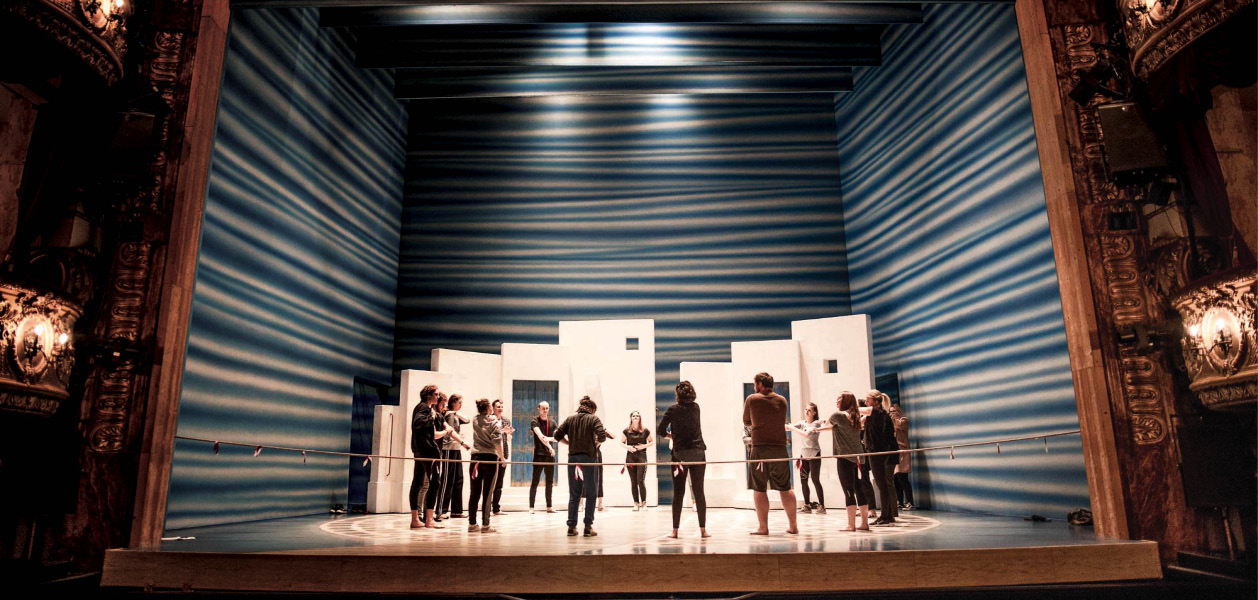Susan Elkin visited TheatreCraft 2018, offering great advice to students looking for careers in the creative industries.
A few years ago there was a lot of anxious talk across the performing arts industries about worsening skills shortages. Young people know about acting, singing and dancing but they tend not to be aware of the importance of stage managers, scenic constructors, directors, producers, costume makers, make up artists, lighting technicians etc. Then there’s the whole field of design.
Theatre, as I wrote in my 2013, book So You Want to Work in Theatre (Nick Hern Books) is like an iceberg. For everything you can see there’s an awful lot going on behind the scenes which you can’t.
Well, much has been done to dent those skills shortages since then. There are some excellent apprenticeship schemes at, for example, National Theatre and Royal Opera House and in regional theatre all over the country – working in almost every aspect of theatre making. Creative and Cultural Skills has beavered away very successfully to provide courses, create opportunities and raise awareness. And drama schools such as Guildhall School of Music and Drama, Mountview and Royal Birmingham Conservatoire run fine theatre arts courses. So, incidentally, do Wimbledon College of Art, London College of Fashion, Nottingham Trent University and Plymouth College of Art – among many others.
It has always been difficult to get awareness of careers in directing, producing, playwriting, lighting, stage management, PR and the rest into schools. Pupils, parents and teachers see what happens on stage but often have little understanding of the infrastructure which supports it.
The training opportunities are lined up but there is still a knowledge gap at school leaver level. Many teachers and careers advisers know very little about the creative industries (including performing arts) which contribute £250 billion per year – that’s 14.2 % – to the British economy. The sector is growing faster than the economy as a whole and is one of Britain’s strongest exports. Who says it’s not a good area to work in? Somehow we have to get all this across to (some) school staff who merely know that actors are often unemployed so they try to deter their theatrically enthusiastic students from applying. So how do we get the message to young people who often don’t have the experience to know what goes on beyond the visible performance and who aren’t getting the right advice at school?
TheatreCraft, the annual careers fair, which I attended in November, is doing a fine job by getting around a thousand young people through the door every time. Run by Theatre Royal Haymarket’s Master Class initiative in partnership with Royal Opera House, Mousetrap Theatre Projects and Society of London Theatre, 2018 was its 13th year and I’ve been to most of them.
The event has – encouragingly and rightly – grown over the years. Over the last decade or so it has outgrown the foyers of Theatre Royal Haymarket and moved to the Royal Opera House’s Floral Hall and now, since 2016, to the Waldorf Hilton in Aldwych. The light bright open space in the hotel was ideal for the “marketplace” and exhibitors seemed to have ample room. The main stands provided information all day while seminars and sessions ran conveniently in nearby theatres.
It was good to see so many young people talking earnestly about courses to staff from, for example, LIPA, East 15, GSA, Central and RADA. Organisations such as National Youth Theatre (excellent backstage summer courses) which is more inclusive than many people realise, and Roundhouse which runs a far reaching opportunity-rich education programme were present too. And I stress that those are just examples. It was a very busy, buzzy event graced by 61 stands.
The eclectic workshop/seminar programme was impressive too. I dropped in on some sessions and was particularly taken with Nigel Lilley (Musical Director on Company at the Geilgud Theatre) talking with animated charisma about the role of the musical director. I thought I had a pretty clear understanding of how musical theatre works but I learned a great deal in 20 minutes.
It’s quite a bonus for young people to get all this free. Some come in school or college groups and others as individuals. And they range from enthusiastic 16 year olds though to researching 20 somethings who may already have trained in theatre or something else and are now seeking a next career step.
Look out for TheatreCraft 2019 – usually a Friday in mid-November. It’s doing an excellent job. I just wish more careers advisers and teachers were there gathering information to take back to students who couldn’t make it.
It is also worth noting that although a thousand people is a good number, in national terms this is a drop in the ocean. Moreover, the young people there are the ones whom someone has encouraged to come. What about their counterparts in other parts of the country or in schools and colleges where no one knows enough even to point them in the right direction? There is still a huge job to be done in off-stage careers education.
theatrecraft.org



